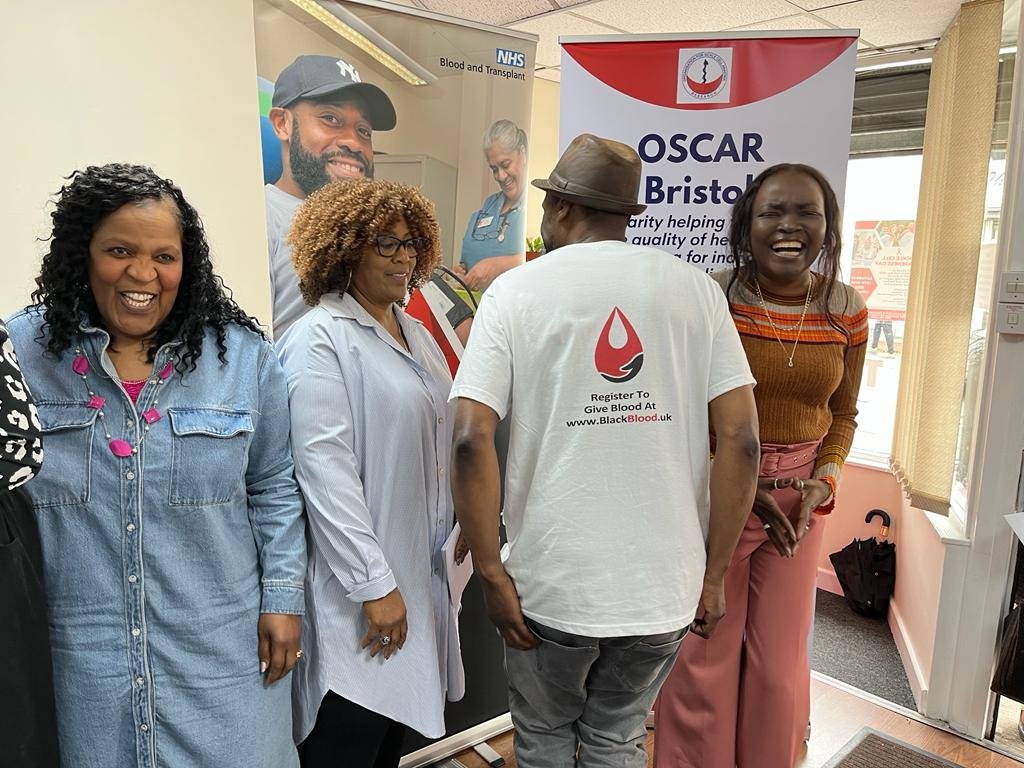World Sickle Cell Day – Raising Awareness Of This Blood Disorder

I was at the World Sickle Cell Day event held at The Sickle Cell & Thalassaemia Centre in Bristol. The venue was filled with sickle cell warriors, blood donors and representatives from various organisations. Community campaigners such as DET Entertainment and members of the general public were also present. For those who are unaware, World Sickle Cell Day is commemorated on the 19th June every year.
Paulette Palmer from Friends of Cymru Sickle Cell & Thalassaemia gave an educational speech about sickle cell. Greg Davies from Organisation for Sickle Cell Anaemia Research (OSCAR) Bristol along with Simone Bell hosted the event. Richard Eugene was also there giving reasons why black blood donors are desperately needed for growing sickle cell patients.
“I have the Ro subtype which goes straight to sickle cell patients. It’s a very rare blood type which is mainly found in black people. Seeing that the NHS require 4000 pints of blood for sickle cell patients alone, this is an indication that many more of us are needed to help fight these chronic blood disorders. That’s why I do it. These are the main reasons why I campaign. We are reaching out for more black blood donors to step forward.” Blood campaigner Richard Eugene explained, whilst addressing the attendees at the event.
We then started networking with each other after a couple of hours of informative speeches and Q&A sessions. I was honoured to meet some great people. Representatives from DET Entertainment to Paulette Palmer’s organisation were in the mix, and people were able to register to give blood on the NHS website. The OSCAR Bristol staff provided light refreshments for all guests and we all came away with some great knowledge.
About Sickle Cell Disorder
Sickle Cell is a blood disorder which you are born with and mainly affects people from African and Caribbean origin. This is because your blood genes are inherited from your parents. If one or both parents carry the trait, then this will increase the chances of your treasured offspring being born with either the trait, or the disorder.
Sickle cell disorder is when your red blood cells are of an abnormal shape. Usually your red blood cells are round, but in sickle cell patients (or Warriors as many of them prefer to be referred to as) the red blood cells consist of a crescent shape. If your red blood cells are not quite round but not quite crescent shaped, then you are a carrier of the sickle cell trait. This is why it’s very important to know if you carry the trait, especially if you are about to start a family and conceive children of your own.
The above paragraphs give a basic explanation of sickle cell to get a general idea in layman’s terms. For further information on sickle cell disorder, please visit Paulette Palmer’s website or the Sickle Cell Society.
About the Ro blood type

The Ro subtype is a variation of the Rh positive blood type. Simply put, Ro blood has a certain combination of genes. Ro donors have special markers on their red blood cells, and while this blood type is normal, it’s very rare.
If your blood group is A+, B+, AB+ or O+ (otherwise known as RhD positive) then you might also have the Ro sub-type. The Ro blood type is extremely rare but is invaluable to sickle cell and thalassemia patients. Of the entire UK population, only 2% have this rare sub-type which is mainly found people from African and Caribbean origin.
The sickle shaped blood cells can sometimes block small blood vessels and die off early, leading to a constant shortage of red blood cells. When this happens a sickle cell crisis can occur, which is very painful and require hospital treatment. It is treated via regular transfusions of Ro blood. Demand for this subtype is growing by 10% every year, but only 1% of donors fall into this rare sub group.
Did you know? 1 in every 365 black children are born with sickle cell disease and 44% of African Americans have Ro blood. Source: Versiti – Leader in Research & Treatment for Sickle Cell Disease.
For further information on Ro blood and sickle cell disorder, please visit The Sickle Cell Society, the UK’s largest sickle cell organisation


